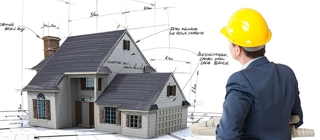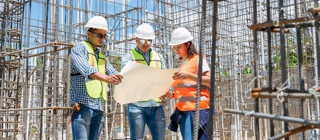RS Virla Group

8 Practical Tips
Building a house is one of life's biggest ventures, but it can also feel overwhelming, especially if you are constructing your first home. From picking the right materials to keeping your budget on track, the journey from foundation to finish requires careful planning. Here are some practical tips to guide you through the home-building process so it's smooth, enjoyable, and ultimately rewarding.
1. Set a Realistic Budget Early On
Before you lay the first brick, chalk out a practical budget about how much your home will cost. Getting carried away with fancy ideas is easy, but setting a realistic budget is critical. Remember that unexpected expenses can pop up, so it's wise to factor in extra costs for high-quality materials, labour, permits, and interior finishes. Having a buffer will save you from headaches later.
2. Choose the Right Construction Materials
When constructing your first home, the quality of construction materials makes all the difference. Strong, durable materials like TMT bars, cement, and bricks will impact the long-term stability of your house. Partnering with trusted suppliers ensures that you're investing in the structural integrity of your home.
3. Understand Your Location
The location of your home plays a huge role in home-building. Are you building in an earthquake-prone zone? Does the area get heavy rains or extreme heat? These environmental factors will help you decide what's best. For example, TMT bars serve different purposes depending on the environment.
In earthquake-prone regions, high-strength TMT bars provide critical reinforcement to absorb shocks, protecting your home from structural damage. In areas with high humidity or heavy rainfall, corrosion-resistant TMT bars are essential to prevent rusting and ensure the longevity of your home's foundation. Choosing the correct type of TMT bar tailored to your location is crucial for long-term durability and safety.
4. Work With an Experienced Contractor
Don't underestimate the value of a good contractor. When building your first home, you need someone who can bring your vision to life while keeping things on schedule and within budget. Experienced contractors are familiar with local building codes, regulations, and the best materials to use for your area. This means fewer delays and no nasty surprises.
5. Design for the Future
It's easy to focus on what you need now, but consider your future when planning your home. Will your family grow? Will you need extra space for a home office? Home-building is a long-term investment, so think ahead. You might opt for an open-plan layout that can easily be modified later or include extra rooms for future family members.
6. Invest in Energy Efficiency
Sustainability isn't just good for the planet—it's great for your wallet, too. Think about energy efficiency during the home-building process. Insulation, energy-saving windows, and even solar panels might cost more upfront but will save you money on bills over time. Plus, they increase the resale value of your home in the long run.
7. Don't Forget Storage
Storage is one of those things that you won't miss until it's too late. Think about where you'll need space—from built-in closets to kitchen pantries—so your home stays organized and clutter-free. It's much easier to include Storage during the planning stages than try to figure it out once the house is built.
8. Stay Involved in the process
Finally, remember that this is your home. Stay involved throughout the entire home-building process, even if you have a great contractor. Visit the site regularly, ask questions, and make sure everything is meeting your expectations. By staying engaged, you'll feel more confident in every step of the process.







